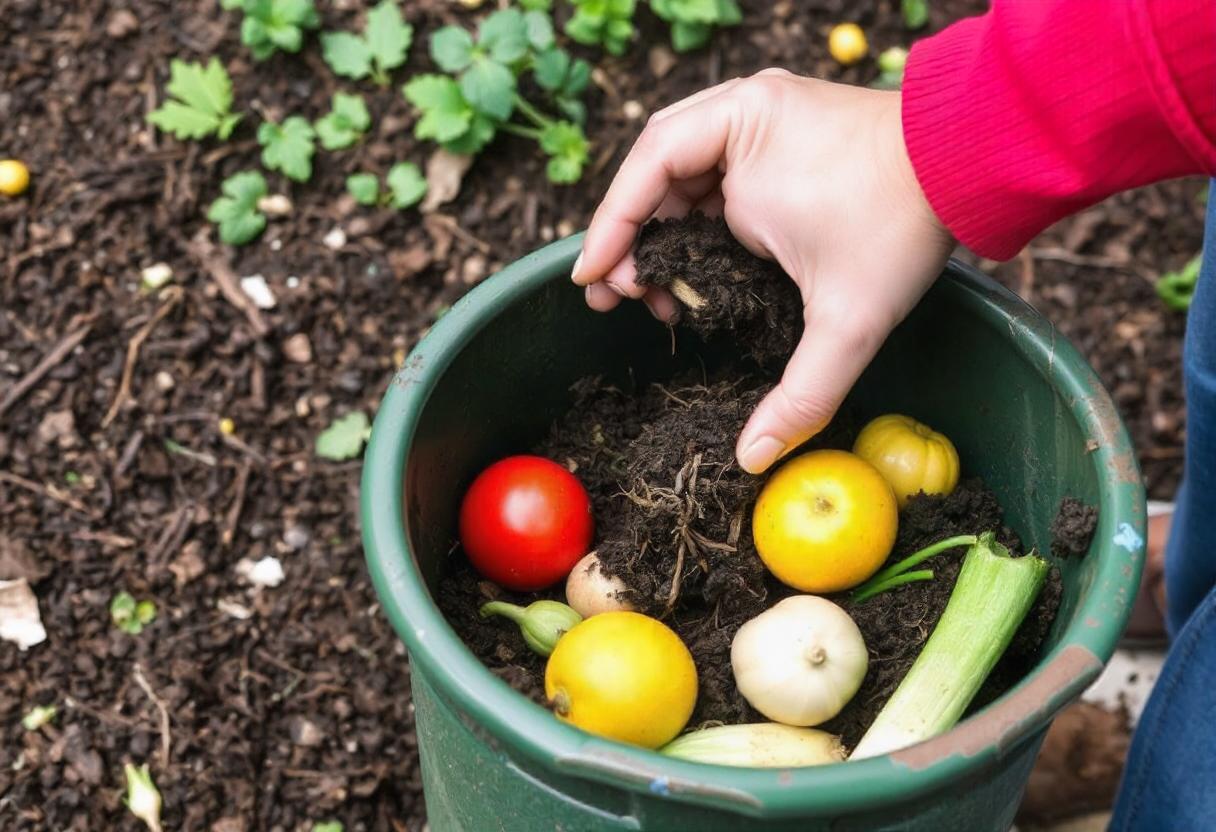
Understanding Composting
Composting is a natural process of recycling organic matter, such as food scraps and yard waste, into a nutrient-rich soil amendment known as compost. This process involves the decomposition of organic materials by microorganisms, including bacteria, fungi, and insects. These organisms break down the materials into simpler substances, creating a dark, crumbly substance that can enhance soil health and structure.
Benefits of Composting
Composting provides numerous environmental and practical benefits:
- Reduces Waste: By composting, you divert organic waste from landfills, where it would otherwise contribute to methane emissions and take up space.
- Improves Soil Health: Compost enriches the soil with essential nutrients, improves its structure, and enhances its ability to retain moisture.
- Reduces the Need for Chemical Fertilizers: The nutrients in compost can reduce the need for synthetic fertilizers, promoting more sustainable gardening and farming practices.
- Encourages Beneficial Microorganisms: Compost supports a healthy ecosystem of beneficial microorganisms in the soil, which can help plants grow stronger and more resilient.
Types of Composting Methods
Several methods can be used for composting, depending on the volume of organic waste and the space available:
- Traditional Composting: This involves creating a compost pile or bin where organic materials are layered and turned regularly to aerate the pile and speed up decomposition.
- Vermicomposting: This method uses worms, typically red wigglers, to break down organic waste. The worms consume the waste and produce nutrient-rich castings that can be used as compost.
- Bokashi Composting: A fermentation process that uses a mixture of microorganisms to break down organic matter in an airtight container. This method is suitable for indoor composting and can handle a wider range of materials, including dairy and meat.
- Tumbler Composting: This method uses a rotating compost bin, which allows for easy mixing and aeration of the composting materials. It’s a more efficient way to speed up the composting process.
Key Components of a Compost System
A successful compost system requires a balance of several key components:
- Organic Materials: These include green materials (rich in nitrogen), such as vegetable scraps and grass clippings, and brown materials (rich in carbon), such as leaves and cardboard.
- Air: Aeration is crucial for composting, as it helps microorganisms thrive and prevents the compost from becoming anaerobic, which can lead to unpleasant odors.
- Moisture: The compost pile should be kept moist, similar to a wrung-out sponge. Too much moisture can lead to a soggy pile, while too little can slow down the decomposition process.
- Heat: Decomposition generates heat, and maintaining a warm temperature (typically between 130°F and 160°F) helps speed up the composting process.
Organic Waste Management Practices
Effective organic waste management involves strategies to minimize waste generation and optimize the composting process:
- Source Separation: Separating organic waste from other types of waste at the source allows for easier composting and reduces contamination.
- Community Composting: Community composting programs can help manage organic waste on a larger scale, providing shared resources and facilities for composting.
- Educational Programs: Educating the public about the benefits and methods of composting can encourage more widespread adoption and improve waste management practices.
- Policy and Incentives: Government policies and incentives can support composting initiatives, such as providing subsidies for composting equipment or mandating composting for certain types of waste.
Challenges and Solutions
While composting and organic waste management offer many benefits, there are challenges to consider:
- Contamination: Non-organic materials can contaminate compost and reduce its quality. Careful sorting and education can help minimize contamination.
- Space Constraints: Limited space for composting can be a barrier. Solutions include compact composting methods like vermicomposting or bokashi composting.
- Odors and Pests: Poorly managed compost piles can attract pests and produce unpleasant odors. Proper aeration, balanced materials, and regular maintenance can address these issues.
By implementing effective composting practices and addressing challenges, individuals and communities can contribute to a more sustainable approach to waste management and environmental stewardship.